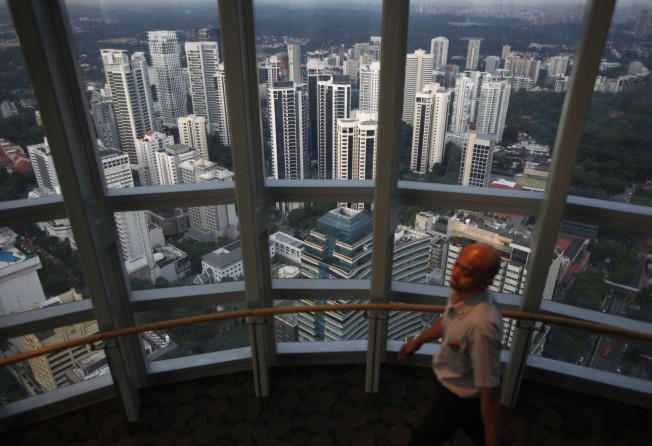Curbs take their toll on Singapore luxury projects

Luxury property developers in Singapore are facing their worst sales outlook in six years as a raft of government measures to cool one of the world's most expensive real estate markets bite.
Sales of private homes, which account for just under one-fifth of the total property market, fell to their lowest in more than four years from January to March, official data showed this week. If the decline continues at the same pace for the rest of this year, analysts expect sales to halve from the 15,000 units sold last year.
Prices of private residential properties are also expected to fall this year and the next by between 10 and 20 per cent, analysts say. The drop began at end of last year, due to the government measures, reducing prices that had increased by about two-thirds since end-2009.
The weakness in the market is likely to weigh on the sales outlook of smaller listed developers of premium properties such as Wheelock Properties (Singapore), Ho Bee Land and Wing Tai.
Larger developers are less affected due to their more diversified portfolios, but they are also cutting prices. CapitaLand, Southeast Asia's largest listed property developer, is selling units at its Sky Habitat condominium for S$1,370 (HK$11,778) per square foot compared with as high as S$1,900 when it was launched two years ago, agents say.
"It feels like we're back in 2008," said Christine Li, head of research at real estate firm OrangeTee, referring to the property slump that affected Singapore during the global financial crisis.
"There's quite a difference between the number of people who express interest in a development compared to those who are able to commit."
Singapore is the world's fourth most expensive market for luxury property according to Knight Frank, with prices propelled by a scarcity of land and its popularity as an investment destination for wealthy Asians. Most of the country's 5.4 million people, however, live in cheaper, government-built flats.
Private houses and condominium apartments account for about 18 per cent of the market, but the value of contracts awarded each year to build these properties usually outstrips that for public housing.
Last year, contracts worth nearly S$10 billion were awarded for private residential construction, a figure the building regulator estimates will fall by as much as a third this year as developers avoid new longer-term projects in an unfavourable environment.
Wary of a property bubble, the government has initiated seven rounds of cooling measures since 2009. These had failed to put a major brake on price rises until a new rule last June took effect, limiting buyers total loan obligations to 60 per cent of their monthly income.